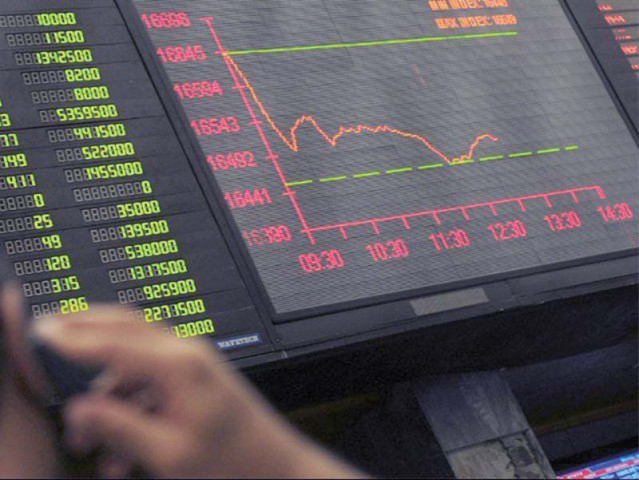Pakistan Stock Exchange: Market noisier than ever, but outlook still positive
Survey finds most respondents say bearish run is not here to stay

PHOTO: EXPRESS
Since hitting a record high at the end of January this year, the index has retreated close to 3.8%.
So what exactly happened to Asia’s top performing market in 2016?
It is at the cusp of entering MSCI’s Emerging Markets Index in May and, if you believe the government’s narrative, the country’s economy is on the verge of a takeoff.
Making changes: PSX initiates process to launch derivatives
With companies set for growth, why have stock prices fallen?
The answer lies somewhere between political noise and the regulatory crackdown being undertaken by the Securities and Exchange Commission of Pakistan (SECP).
Amid multiple defaults committed by brokerage houses and illegal trading activities committed by many more, the SECP has decided to adopt a stricter stance.
The ongoing Panama case has also kept investors on their toes.
The buzz these days
But there is still a positive buzz around the stock market.
Corporate and institutional investors remain bullish ahead of the settlement of political noise and formal upgrade of the Pakistan Stock Exchange (PSX) into the MSCI Emerging Markets Index in May, according to results of a survey conducted by a brokerage house.
The optimism prevails despite the emergence of some very serious issues on the external trade front like a widening current account deficit and slowdown of inward remittances, it said.
Invest and Finance Securities said it surveyed 18 notable banks, funds and corporates to understand and estimate market momentum in the backdrop of escalating political noise.
“Broadly speaking, an outcome of the ongoing noise and market reaction is subjective therefore, we believe a market feeler is required to inform investors regarding general sentiments rather than any implied volatility financial model,” the brokerage house said in a survey-based report jointly written by its analysts Danish M Owais and Syed M Jawad Shamim.
“The broader benchmark [KSE-100 Index] has plunged over 1,406 points in the last 10 trading sessions owing to various negatives like the pending decision of the Panama case, SECP’s curbing measures with regards to margin financing products, deteriorating economic numbers especially widened twin [current account and trade] deficits along with upcoming external debt repayments which could put Pak rupee under pressure.
“Market participants seem to be underweighting positives of Emerging Market reclassification, CPEC, sovereign rerating and Chinese stepping in PSX, while overweighting negatives in the current scenario,” the report said.
MSCI Emerging Reclassification
Out of 18 respondents, 14 said the impact of upgrade of PSX is yet to come. They go with the option “impact will be a boost to the market.” Two of them said the impact has already been priced-in while two remained neutral.
“Generally, institutions are bullish owing to MSCI passive flows, however, they believe active flows will be directed towards undervalued stocks, which could be out of the broader benchmark. This could have a multiplier effect...[on political front],” the brokerage house commented.
Twin deficits
Out of 18 respondents, 8 said Pakistan will go to the IMF to deal with challenges to the economy on the external front. Six said the economy will absorb the impact and Pak rupee would depreciate, while remaining said China would assist Pakistan.
PSX welcomes four board directors from China
“Most have shown concern regarding the widening current account deficit, due to slowdown in remittances and exports and continuous rise in imports.
“On the export front, participants believe that the government should focus on other sectors too, rather than tilting majority of the focus towards textiles only,” the report said.
New financing products
Out of 18 respondents, 16 believed regulators would introduce new financing products to address investors’ concerns while banning in-house (badla) financing. Remaining said no new financial products would be introduced.
“Market participants believe that new regulated finance products will be launched, since the market cannot function properly without financing. Any curbs for a longer period would be negative, especially in the MSCI Emerging Index inclusion time, as this would mop up liquidity.
“However, the SECP is expected to come up with newer modified products, which could probably be better and encourage local buying,” the report added.
Published in The Express Tribune, March 18th, 2017.
Like Business on Facebook, follow @TribuneBiz on Twitter to stay informed and join in the conversation.


















COMMENTS
Comments are moderated and generally will be posted if they are on-topic and not abusive.
For more information, please see our Comments FAQ